Nutrition
Useful articles
People use mood enhancers to combat psycho-emotional disorders (depression, stress, anxiety, neuroses). As you know, these disorders affect our body not only for the worse, but also reduce the result of numerous efforts and training to zero. If you are a bodybuilder and feel that you are depressed, and exercise does not bring you satisfaction and results, then this article on how to boost your mood will help you.
1. What Are Mood Enhancers?
Mood Enhancers ensure the maintenance of an acceptable concentration of neurotransmitters in the body and prevent the formation of disorders of various spectra.
Neurotransmitters are biologically active substances that have a significant effect on the functioning of the brain and the main body systems. Lack of neurotransmitters such as serotonin and dopamine leads to the development of depressive conditions.
2. What Does Mood Enhancing Medication Do?
The human body produces many substances that cause pleasant sensations: pleasure, good mood, euphoria. All of these substances are called neurotransmitters by biochemists, because they are responsible for the transmission of nerve impulses. However, in common parlance, many people call dopamine, serotonin and endorphins – “happy hormones”.
Dopamine carries out the transmission of nerve impulses in the mesolimbic pathway of the brain, which is responsible for the manifestation of pleasure. The higher the dopamine level, the brighter the sensation.
The release of serotonin in the body leads to improved mood and increased physical activity. In turn, a lack of serotonin leads to depression.
Endorphins are produced by the body in response to stress in order to reduce pain. By binding to the so-called opiate receptors, they suppress pain and cause euphoria as a kind of reward for the body for getting rid of pain.
Mood Enhancers affect the production of these neurotransmitters. However, their artificial stimulation causes rapid and persistent addiction. Therefore, medications should be taken strictly under the supervision of a doctor. But don’t forget that there are legal mood enhancers. These are various herbs, vitamins, foods, and various supplements.
3. Why Do Athletes And Bodybuilders Need To Take Mood Enhancing Medication?
Athletes are stressed by excessive strength training. The fall in blood sugar is the culprit. Because of this, the level of cortisol rises.
Cortisol is the main catabolic hormone that is responsible for the breakdown of protein (amino acids), the accumulation of fat (as a source of energy reserves) and the increase in glucose (due to glycogen stored in the liver) in order to prevent a drop in blood sugar levels and, accordingly, to give the body a source of free energy for current needs.
However, in everyday life it has earned the name “stress hormone”. Naturally, bodybuilders do not like this as it hinders results. To overcome this stress, athletes use mood booster supplements.
Also, bodybuilders use mood enhancing medication to have an advantage over other athletes. Drugs can give an immediate burst of energy, improve endurance and speed, and increase motivation.
4. What’s The Difference Between Low Mood And Depression?
Low mood is known to every person. But how do you know when it’s time to seek help from a doctor?
Typically, when we talk about depression as a clinical disorder, there is a specific set of symptoms. Among them, there are basic and additional ones. The main symptoms of depression include:
- Predominantly low mood throughout the day.
- Decreased pleasure in previously pleasant activities.
- Fatigue that manifests itself in the morning. Patients with depression often have some improvement at the end of the day.
- In addition, the diagnosis of a depressive disorder requires a number of additional symptoms: decreased ability to concentrate and focus attention, decreased self-esteem and self-confidence, ideas of guilt, constant reflections that life has no meaning, a gloomy and pessimistic vision of the future, disturbed sleep, and decreased appetite.
If this condition lasts 14 days or more, then it is most likely clinical depression.
In some cases, if the symptoms of depression are very pronounced, then the diagnosis of a depressive disorder may be appropriate earlier than 14 days.
Unfortunately, depressive disorders are among the most common mental disorders. According to the World Health Organization (WHO), about 320 million people worldwide suffer from depressive disorders today.
Doctors have at their disposal a range of effective treatments that can help fight depression. These include not only mood booster pills.
For example, a good effect is shown in: light therapy, aeroionotherapy, physical exercises (fitness), wellness diest and other non-pharmacological instruments. Of course, psychotherapy is also important in the treatment of depressive disorders. In real clinical practice, in the case of depressive disorders, it is most often necessary to use various combined methods of treatment, including both pharmacological and non-pharmacological methods.
5. What Are The First Steps In Dealing With Moodiness?
The best ways to deal with depression are through psychotherapy and treatment as prescribed by your doctor. However, there are several ways to deal with stress and depression on your own.
There are several simple, affordable ways for everyone to regain the ability to enjoy life. You should not limit yourself to one thing in order to defeat a gloomy state of mind. You need to act in a comprehensive manner.
- Healthy sleep. A very common cause of bad mood in modern people is lack of sleep. It was not for nothing that even in ancient times it was believed that sleep is the best medicine.
- Wellness diet. Irregular, unbalanced, unhealthy diet provokes not only digestive problems, but also a deterioration in general well-being, both physical and psychological.
- Fresh air. Regular walks not only saturate our body with oxygen, but can also distract us from bad thoughts.
- Treat yourself to something. Sweets, fruits, cocktails… exactly what you love. Just do not overdo it, because a few extra pounds that subsequently appear may worsen the mood again.
- Water treatments. As you know, water has a beneficial effect on our physical and psychological well-being. It cleanses, relaxes, soothes. Are you in a bad mood? Take a bath with scented oils, take a cool shower, or go for a swim in the pool.
- Positive emotions. What gives you pleasure? Shopping, music, caring for your pet, watching an old movie, or chatting with a friend on the phone. Surely, you yourself know better than others how to please yourself. Feel free to do it! After all, your good mood is also a guarantee of joy in your home.
- Spend more time with loved ones. Call your parents, hug your loved one, play with the kids, visit friends. In short, turn to those who are dear to you and who need you. The realization that you are not alone, that you have close and dear people will allow you to forget about pressing problems and troubles.
For some, to improve their well-being, a large portion of ice cream will help, but some cannot do without the help of a psychologist. Do not be afraid to ask for help, as it is very difficult to cope with difficulties alone.
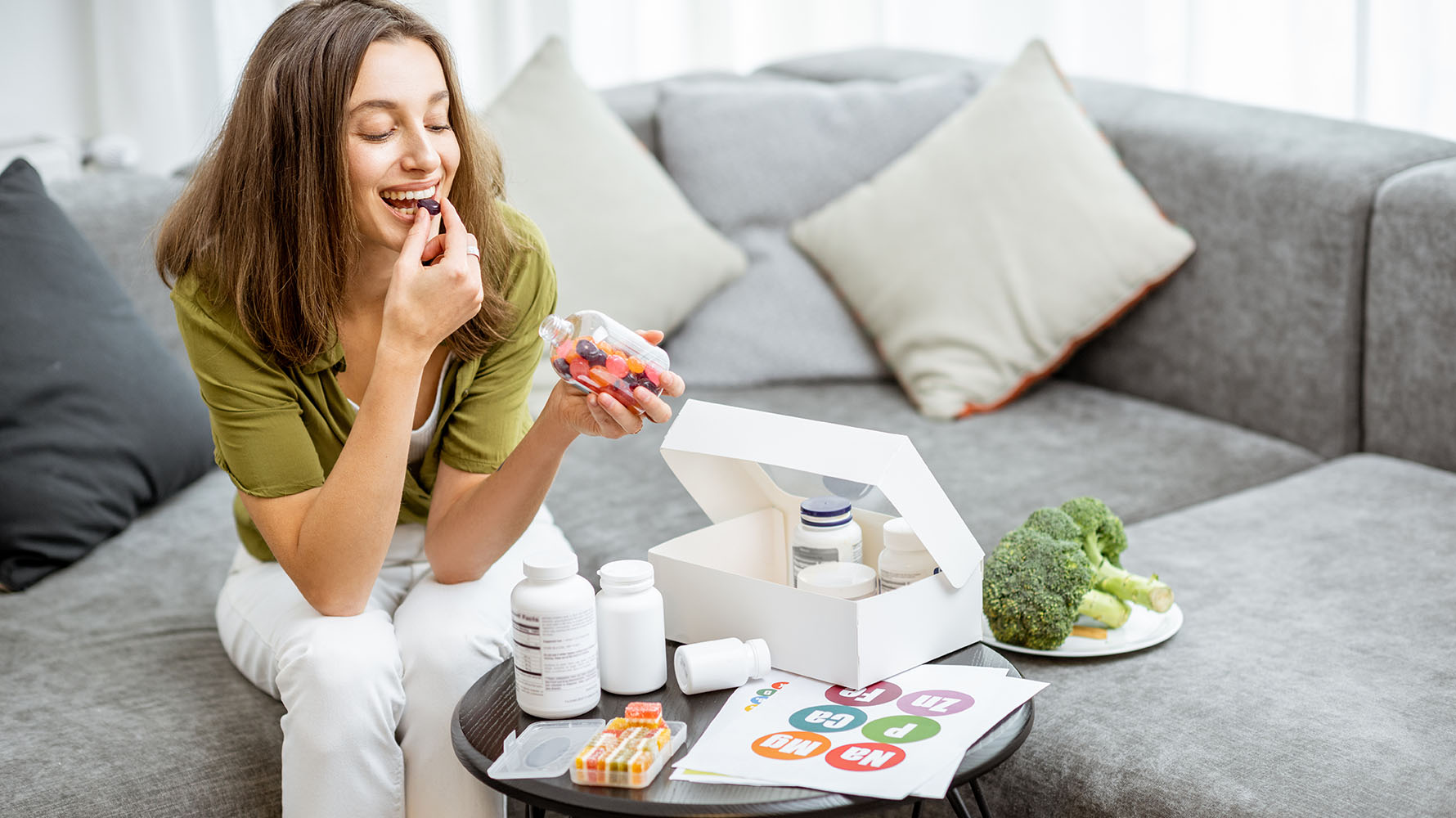
6. Herbs, Vitamins, And Supplements Used To Enhance Mood
Scientists have proven that there are foods that affect mood. A group of Mexican researchers, after in-depth analysis of chemicals from many popular foods, found that some of them are chemically similar to those found in widely used antidepressants. We have compiled a list of 17 foods that can positively influence mood and fight depression.
6.1 Probiotics
The beneficial bacteria contained in fermented milk products strengthen the immune system and improve digestion. But are they able to influence our mood? This question was answered by cognitive psychologists from two Dutch universities.
The results of the study clearly demonstrated that taking probiotics (food supplements containing beneficial bacteria) improves mood. The study was based on data that the intestinal microflora can influence (directly and indirectly) the brain processes, and therefore, the cognitive and affective reactions. One known sign of an increased risk of depression is more aggressive or repetitive thoughts as a cognitive response to normal sadness.
In an experiment, scientists studied 40 healthy people who do not suffer from mood swings, depression or anxiety. Half of them took drugs containing eight different types of beneficial bacteria for four weeks, which studies show can relieve depression and anxiety. The second group received a placebo.
Before and after the experiment, the researchers tested all participants on a depression sensitivity scale. Prior to the experiment, no significant differences were found between the participants in the two groups. But after four weeks, those taking the probiotics showed a significant decrease in the cognitive response to sadness compared to the other group, and thus a lower risk of depression.
During the experiment, the scientists did not set out to determine through which biological mechanisms probiotics affect our mood. It is possible that beneficial bacteria strengthen the epithelium and thereby reduce the permeability of the intestinal walls, and other studies have shown that increased permeability is correlated with symptoms of depression. Another hypothesis is that probiotics increase levels of tryptophan (an amino acid that is involved in the production of serotonin, which in turn contributes to our resistance to mood swings).
However, the effect of probiotics on the well-being of people is still poorly understood, and larger and longer studies are required. But even preliminary results offer hope that they may be beneficial not only for improving digestion, but also for preventing depression.
6.2 Mucuna Pruriens
Mucuna Pruriens is a legume that grows in tropical climates in Africa and India. Due to the beneficial properties and high content of antioxidants, the seeds are harvested, dried, concentrated in an extract and used in medicine in the complex treatment of various diseases.
Mucuna contains a complex of antioxidants, tannins, saponins and alkaloids that have a beneficial effect on the body, support immunity, increase energy and stress resistance, and activate the brain. But the most valuable active substances of the plant are l-DOPA and levodopa, which play a key role in the production of adrenaline, norepinephrine and dopamine. It is on these neurotransmitters that our psycho-emotional state depends, as well as all cognitive processes of the brain, including thinking, memory, concentration and mood.
Since the plant increases the production of dopamine in the body, Mucuna pungent is considered to be an effective herb for treating depression, mood swings, memory and concentration problems, and chronic fatigue. Clinical studies have also shown that mucuna is effective in the complex treatment of Parkinson’s disease, since the plant contains a large proportion of lepodopa.
Mucuna pungent has no pronounced side effects, therefore it is safe for the body. But at high, uncontrolled doses, symptoms such as hyperactivity, insomnia, nausea, vomiting and headaches, tremors may occur.
6.3 Ginkgo Biloba
Ginkgo Biloba is a truly unique plant that still “remembers” dinosaurs. In the scientific world, ginkgo biloba is known as the only plant whose leaves contain special substances (ginkgolides and bilobalides). If we talk about the composition of this plant, then it is unique: there are more than 40 biologically active substances in the leaves of ginkgo. Tellingly, they act in a complex and very versatile way, complementing each other.
Ginkgo biloba extract activates the brain, as it improves blood circulation and increases energy production. This effect can lead to improvement in people with symptoms such as headaches, short-term amnesia, dizziness, tinnitus, depression, and lack of vigilance.
Ginkgo biloba extract is considered an absolutely safe drug, with the use of which side effects are rarely observed. However, since at the moment there is not enough data to judge the effect of the extract on pregnant women and nursing mothers, they are advised to refrain from using it. In addition, diabetics should consult with their healthcare professional before taking ginkgo biloba.
6.4 Curcumin
Turmeric is called a golden spice, not only due to the color it gives to dishes, but also for its beneficial properties. It is one of the most effective nutritional supplements in the world. For thousands of years, turmeric has been used as a medicinal plant by the people of India, and at the beginning of this century, many clinical studies confirmed its extraordinary benefits for almost all body systems.
The active compounds in this spice help to delay age-related changes in the nervous system and prevent Alzheimer’s disease. A key feature of this disease is the accumulation of protein tangles (amyloid plaques). Research shows that curcumin (the main component of turmeric) can help eliminate them. In addition, it improves memory and concentration by stimulating the formation of new neural connections in the brain.
Curcumin is a natural antidepressant that helps prevent depression by stimulating the production of serotonin and dopamine.
Turmeric can be a great addition to your daily diet. Add it as a seasoning to meat and cereals. Do not forget about black pepper, because without it, curcumin will be poorly absorbed. In addition to the undeniable health benefits, your favorite foods will acquire a pleasant golden color and spicy aroma.
6.5 Oregano Oil
First of all, oregano is a medicinal herb with a strong wound healing effect. Its leaves and flowers contain large amounts of essential oils and tannins. Oregano contains thymol and carvacrol, thanks to which this herb surpasses many existing antihistamines and antiseptic drugs in action.
Oregano is a mild antispasmodic that can relieve many pains. It works well for headaches, muscle aches and cramps. Oregano oil is used to rub the back for rheumatism and radiculitis, as well as for joint pain.
For disorders of the nervous system, oregano is also recommended. It is believed that by adding it to food, you can get rid of insomnia. This herb raises tryptophan levels, promoting overall calmness. Previously, this herb was often used to treat hysteria and epilepsy. Currently, doctors do not recommend self-medication in cases of severe neurosis or depression. However, oregano works well as a mild sedative to improve sleep.
It should be borne in mind that oregano oil is not used in concentrated form. It must be added to some other vegetable oil (olive, sesame, etc.)
Despite the numerous indications for taking this miraculous plant, some people are not recommended to use it. First of all, this applies to people who have serious disorders in the work of the cardiovascular system, as well as acute diseases of the gastrointestinal tract.
6.6 Magnesium
Magnesium plays an important role in the human body. A sufficient level of this trace element is necessary to maintain homeostasis at the cellular and organ levels. Magnesium ensures the vital activity of cells, reduces the excitability of neurons and slows down neuromuscular transmission. It influences the course of almost all biochemical reactions and acts as a cofactor involved in the metabolism of protein and nucleic acids. Magnesium also regulates the exchange of calcium and potassium, which affects the condition of the musculoskeletal system, cardiovascular and endocrine systems. Largely due to this microelement, the human body is able to adapt to changing external conditions. Stress tolerance is a quality that is primarily determined by the content of this mineral in the body.
Magnesium deficiency leads to poor resistance to stress, increased anxiety and irritability, impaired attention, depression, sleep disturbances, cardiovascular and hormonal systems, and a noticeable decrease in overall energy levels in the body. In turn, when exposed to stress factors, the excretion of magnesium from the body increases, which further exacerbates the problems that have arisen.
The daily magnesium requirement for men is 350-400 mg, and for women 280-300 mg. Considering that this microelement is not produced in the body, the entire dose must be supplied with food.
Today magnesium can be bought in various forms: liquid, powder, capsules, etc.
6.7 Green Tea
Green tea deservedly has the title of mood booster supplement. This drink contains a huge amount of antioxidants (polyphenols) that help remove harmful substances from the body, including free radicals, which lead to premature aging of the body.
Scientists from Tohoku University (Japan) have found that green tea can relieve seniors from blues. Research has shown that a melancholy mood can be relieved if an elderly person over seventy drinks four or more cups of tea a day. Tea drinkers are 44% less likely to develop symptoms of depression than those who drink no more than a cup each day.
Of the 1,058 subjects, 34% of men and 39% of women developed symptoms of depression. Moreover, in 20% of men and 24% of women, the manifestations of the mental disorder were serious. 488 respondents reported drinking more than four cups of green tea daily, 284 respondents reported two or three cups each, and 286 one or less.
The beneficial effects of the drink on mental state did not change even when social and economic status, gender, diet, medical history, antidepressant use, smoking and physical activity of the subjects were taken into account. Scientists believe green tea is protected by the amino acid theanine, which has a calming effect on the brain.
For the record, black tea and oolong tea do not protect seniors from depression.
By the way, it was recently found that green tea reduces the risk of developing oral cancer and certain types of blood cancer. So, those who drink five cups of the drink have a 42% lower risk of developing an ailment than those who drink tea not so diligently (a cup a day or less). The risk of developing cancer of the lymphatic system among tea drinkers is reduced by 48% in comparison with the rest.
6.8 Vitamin D
The main function of vitamin D is to participate in calcium metabolism. But calcium is not only bones, but also interneuronal connections. Vitamin D is essential for the synthesis of norepinephrine, adrenaline, and serotonin. These substances (especially the latter) are involved in emotional reactions and states. Therefore, the role of vitamin D in the formation of nervous and mental diseases is now being intensively studied. And it has already been proven that a deficiency of this vitamin is associated with depressive disorders.
Most studies show an improvement in mood in patients after taking vitamin D supplements, especially in middle-aged people and in those who live in areas where the climate is not particularly sunny (for example, State of Washington or Montana). Vitamin D is effective on its own and enhances the effect of antidepressants.
But, of course, vitamin D cannot be considered an instant mood booster. The processes in our body leading to a depressive state, firstly, are complex, and secondly, they are variable. In one person, this may be due to a vitamin deficiency, in another, the key disorders may be different.
However, middle-aged people, especially if they live in the northern states, should take vitamin D.
6.9 Caffeine
There is a lot of research on the effects of caffeine on depression. In 2018, Korean physiologists and physicians from Kyung Hee University (Seoul) published the results of a study on how caffeine in coffee and green tea can be used to prevent depression.
Scientists have deduced a pattern: active consumption of coffee (more than 2 cups a day) reduces the risk of developing depression by 32% by increasing the production of dopamine.
Everything seems to be clear: drinking coffee is healthy. But back to physiology. Caffeine increases the production of stress hormones (cortisol, norepinephrine) and blocks the adenosine system. From sudden surges, the nervous system is gradually depleted, anxiety and fatigue accumulate. Therefore, consuming more than 3-4 cups of your favorite Americano a day, on the contrary, increases the risk of falling into a depressive state.
Conclusion: caffeine is good if in moderation. There is no ideal amount of caffeine for every person, but scientists advise not to overuse it. 2-3 cups of good coffee a day is enough to provide yourself with excellent mood, concentration and vitality.
6.10 Ginseng
Ginseng stands out among natural herbal mood enhancers. It has antidepressant effects but is not euphoric. It does not increase pleasure status, but reduces fear, anxiety, improves concentration, and makes it easier to solve real-life problems.
Ginseng contains all the necessary substances to support the body: vitamins, micro and macro elements, essential oils and fatty acids. Cyclic intake of ginseng extract (tablets, capsules) will replenish their deficiency and fill the body with physical energy. Depression is often accompanied by alcohol and nicotine abuse. Korean ginseng quickly removes toxins from the body and protects against the effects of intoxication.
Ripe 6-year-old ginseng is recommended for lingering depression as a natural stimulant and tonic. Taking ginseng for 1-2 months normalizes the psycho-emotional background and returns the joy of life. This property has long been studied and proven in practice.
6.11 Berberine
Berberine is a potent substance found in various plants such as barberries. This mood enhancer supplement has a positive effect on the human body. It helps prevent heart disease, improves the functioning of the digestive tract, heals the liver and speeds up metabolism.
After oral administration, berberine enters the bloodstream and then into the cells. There, it activates the AMPK enzyme, which is responsible for metabolism. This enzyme is present in the tissues of vital organs such as the heart, brain, liver, kidneys, and muscles. Moreover, berberine can turn on and off various genes, thereby preventing the development of various pathologies.
This substance inhibits the process of digestion of carbohydrates in the intestine, reduces the production of glucose by the liver, increases the concentration of glycoside, which ensures the timely breakdown of sugars in cells.
Experiments have shown that berberine prevents the onset of depression and causeless anxiety and improves mood.
Berberine is recognized as a safe supplement, but in some cases it can cause the following side effects: flatulence, diarrhea, abdominal cramps and constipation. The supplement should not be consumed during pregnancy and lactation.
6.12 Omega 3s
Even a short-term increase in the intake of Omega 3s fatty acids can provide protection for several months in some forms of depression. These data were obtained from a study conducted by an international team of researchers and published in the journal of Biological Psychiatry.
“The study showed that even a short cycle (two weeks) of using a dietary supplement containing one of the Omega 3s polyunsaturated fatty acids reduced the likelihood of new-onset depression by 10%”, – said study leader Carmine Pariante of King’s College London.
It has also been found that Omega-3 fatty acids, found in large amounts in fish oil, reduce the risk of heart disease and act as anti-inflammatory agents. The researchers also suggested that this supplement may have an effect on cognitive and mental functions. In an earlier study (journal of Biological Psychiatry), the same researchers found that people with lower levels of Omega 3s eicosapentaenoic acid (EPA) in their blood were significantly more likely to develop depression.
6.13 Vitamin B6
Vitamin B6 stimulates the production of dopamine and serotonin, which help the body cope with stress, depression and anxiety. In short, it is a mood vitamin. If you are experiencing prolonged depression and PMS is becoming a real challenge, then it may be time to buy Vitamin B6 supplements to replenish your supply of this element. Without it, dopamine (the hormone of pleasure) and serotonin (the hormone of good mood) cannot be produced. It also lowers the level of homocysteine in the blood, which rages after severe shocks and stress. With an excess of it, a person gets cardiovascular disease, stroke and Alzheimer’s disease. Vitamin B deficiency doubles the occurrence of depression, according to a study.
6.14 Vitamin B3
B3 (Niacin) is a vitamin for young and beautiful skin. It lowers cholesterol levels and aids digestion.
Vitamin B3 has a hypolipidemic effect, dilates small blood vessels and improves microcirculation. It reduces the concentration of total cholesterol, apolipoprotein A, triglycerides, low-density lipids and increases the level of high-density lipids, which have antiatherogenic properties (prevent the formation of atherosclerotic plaques in the vessels). It also increases the fibrinolytic activity of the blood and prevents thrombus formation, reducing platelet aggregation.
Niacin is primarily ingested with food. It is found in rye bread, buckwheat, beans, nuts, unrefined grains, yeast, egg yolk, milk, meat, liver, kidneys, mushrooms and pineapple.
With insufficient intake of Vitamin B3, the skin, digestive organs and the nervous system are affected.
6.15 Vitamin B12
Vitamin B12 is a reliable “food” for our nerves. It ensures the normal functioning of our nerves and participates in their growth and regeneration. B12 also supports our energy metabolism. Therefore, we feel energized when our vitamin B12 levels are balanced. A medical study from Australia’s Swinburne University of Technology (Melbourne) found that people who took vitamin B for several weeks were able to cope 20% better with daily stress and problems.
Those who have to deal with extremely stressful situations or those in severe crisis need more vitamin B12 than usual. These situations can be associated with high mental or physical stress. With its deficiency, anemia, increased fatigue, and memory impairment are observed.
Due to the fact that vitamin B12 is predominant in foods of animal origin, such as meat, liver, eggs, and fish, vegetarians who do not consume these foods are at risk. Many followers of this type of diet especially monitor the balance of this vitamin.
If the first symptoms of a deficiency are noticeable, then you should take appropriate mood enhancers supplements in order to replenish the vitamin balance.
6.16 Vitamin C
Those who lack ascorbic acid often complain of fatigue, drowsiness, and depression. Scientists have not found any connection between a lack of vitamin C and chronic fatigue, but it helps to increase performance and focus when fatigued. In addition, taking ascorbic acid increases the amount of adrenaline in the blood, and it protects adrenaline from oxidation. Therefore, vitamin C is especially necessary for us to overcome stress more easily. In addition, this wonderful adaptogen protects us from the development of the so-called maladaptive neurosis, which occurs due to too short daylight hours. This supplement, due to its properties, accelerates the acclimatization process on long-distance flights.
A large amount of vitamin C is found in citrus fruits, rose hips, parsley, dill, black currants, green peas, red peppers, sea buckthorn berries, brussels sprouts, cauliflower, strawberries and rowan berries. Its best absorption occurs in the presence of vitamin P, which is found in rose hips, buckwheat, greens and black currants.
6.17 L-theanine
Theanine is an amino acid that can be found in abundance in green tea. It has antidepressant properties. This can improve your mood, relieve the negative effects of stress, improve cognitive function and increase energy production for a productive day.
Many manufacturers are developing specialized dietary supplements using theanine. They can be taken by both athletes and those who want to improve their well-being.
L-theanine gives vigor and a surge of strength, replenishes energy, increases efficiency and endurance. It acts as a neurostimulant, increases the production of dopamine and serotonin, and has a positive effect on mood.
Including L-theanine protects brain cells from the damaging effects of stress and prevents the destruction of neural connections. It reduces feelings of anxiety and fear, improves brain activity, allows you to remember and perceive much more incoming information from the outside.
L-theanine will be an excellent addition to the diet of bodybuilders and people leading an active lifestyle.
7. Side Effects Of Mood Stabilizing Medication
Mood stabilizing medication has both positive and negative consequences. However, they appear mainly when the patient uses the wrong dosage. In clinical trials, the most common side effects associated with mood enhancing drugs were:
- Dry mouth
- Nausea
- Constipation
- Anxiety
- Insomnia
- Dizziness
- Headache
You should follow the correct dosage from your doctor to avoid side effects. And also carefully monitor the state of your body.
7.1 Getting The Right Dose
Take mood enhancers exactly as prescribed by your doctor. Follow all directions on the prescription label. Your doctor may change your dosage from time to time. Never take mood booster pills in large quantities or for longer than recommended.
Read all information for patients in the instructions for the drug. If you have any questions, be sure to ask your doctor or pharmacist.
7.2 Controlling Side-effects
Continuous monitoring of the drug concentration level in the patient’s body is one of the most reliable methods for controlling side effects. Many clinics conduct a laboratory assessment of the level of the substance in the blood. Thanks to this, it is possible with the utmost precision to determine the minimum required dose of mood enhancers, which will be sufficient to achieve a therapeutic effect. This will avoid the danger of prescribing irrationally high doses.
Such control not only makes it possible to significantly reduce (or avoid) the side effects, but also to make the treatment process itself as effective and safe as possible.
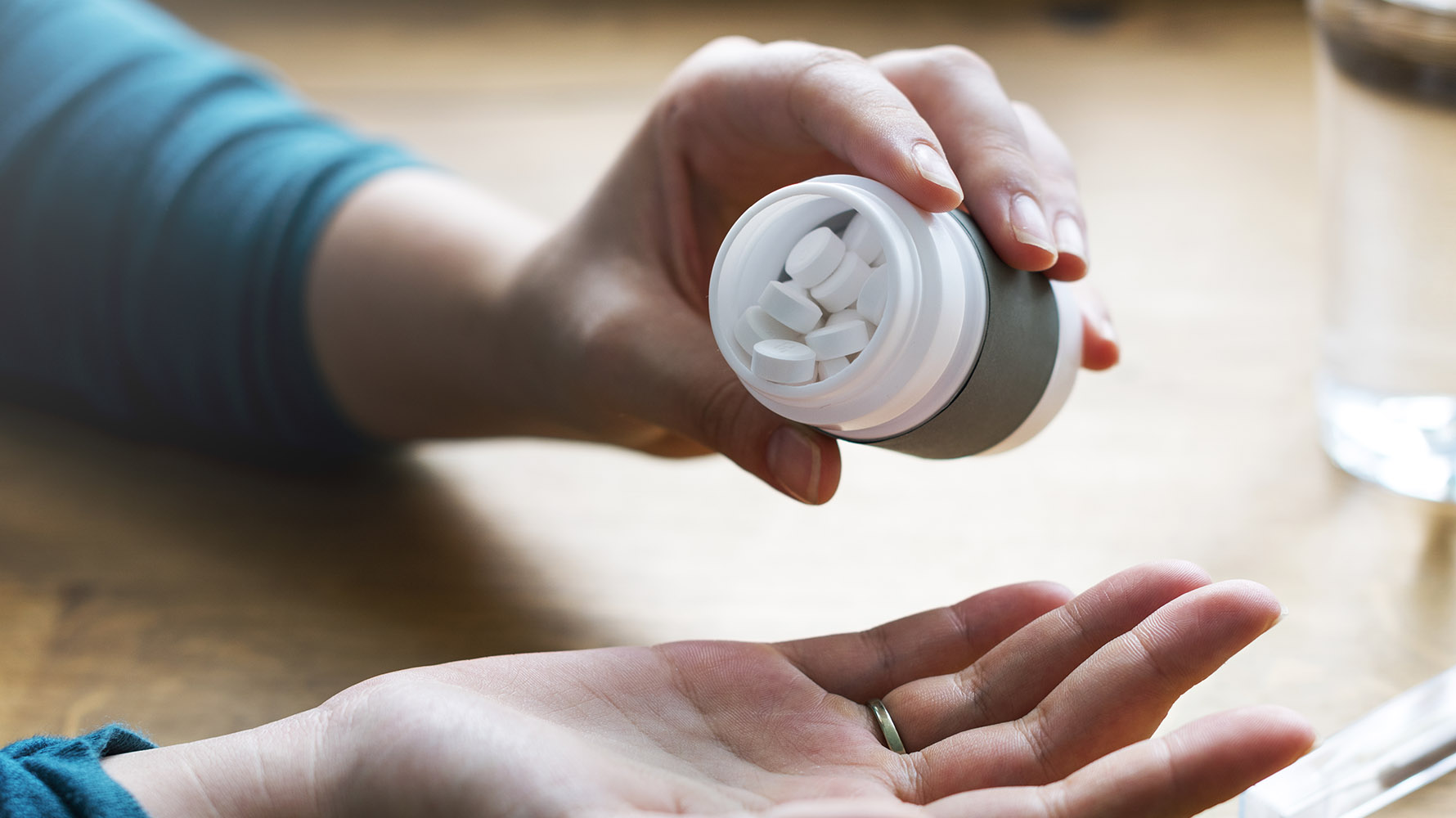
8. Best Supplements To Improve And Support Mood
It is worth noting that indications for mood enhancing drugs have expanded significantly in recent years. There have been numerous studies that have shown the effectiveness of these supplements not only for depression, but also for anxiety, insomnia, neuroses and even neuropathic pain. Today, drugs from different groups of antidepressants are widely prescribed by psychiatrists, neurologists and even therapists.
8.1 Modafinil
Modafinil is a selective alpha-1 adrenergic agonist with a predominantly central action. It is reported that this substance acts through the glutamatergic system and increases the level of glutamic acid synthesis, inhibiting the release of GABA. This drug was developed for the treatment of narcolepsy. In 1998, Modafinil became the first in its class of wakefulness agents approved in the US. During the tests, patients who took this substance were awake for 28 hours, maintaining attention and performance.
According to media reports, this drug is actively used in the US and UK armies to improve performance, primarily in pilots. Modafinil reduces the need for sleep with little or no impact on physical performance. The only indication for its use in clinical medicine was narcolepsy. Bodybuilders use Modafinil to improve concentration.
8.2 Kratom
Kratom is a tree whose leaves are used as a recreational drug and as a medicine. It is banned in some US states due to security concerns.
People use Kratom to stop heroin, morphine and other opioid drugs, as well as for coughs, depression, anxiety, and many other conditions. However, there is no conclusive scientific evidence to support its effectiveness.
8.3 Adderall
Adderall is a drug used in the treatment of attention deficit hyperactivity disorder (ADHD) and narcolepsy. The drug affects the brain in such a way that it begins to release serotonin, dopamine and adrenaline into the bloodstream. These are substances that cause feelings of vigor, pleasure and joy.
Workers in many professions subject to severe psychological stress use Adderall. It allows you to complete difficult and monotonous work, or just relax after it. In addition, the drug suppresses the feeling of hunger. Bodybuilders use it as a doping drug.
9. What Is Modafinil?
Modafinil is an analeptic used to combat drowsiness associated with narcolepsy (falling asleep and sleepiness). The Food and Drug Administration (FDA) has approved the use of this drug for sleepiness associated with obstructive sleep apnea, as well as shift work sleep disorder (SWSD).
The World Anti-Doping Agency (WADA) has included Modafinil in the list of drugs that athletes cannot use both in preparation for competitions and directly during tournaments. It is a powerful stimulant that improves memory, mental acuity and other parameters of mental activity. It effectively relieves fatigue and restores the cognitive functions of the brain.
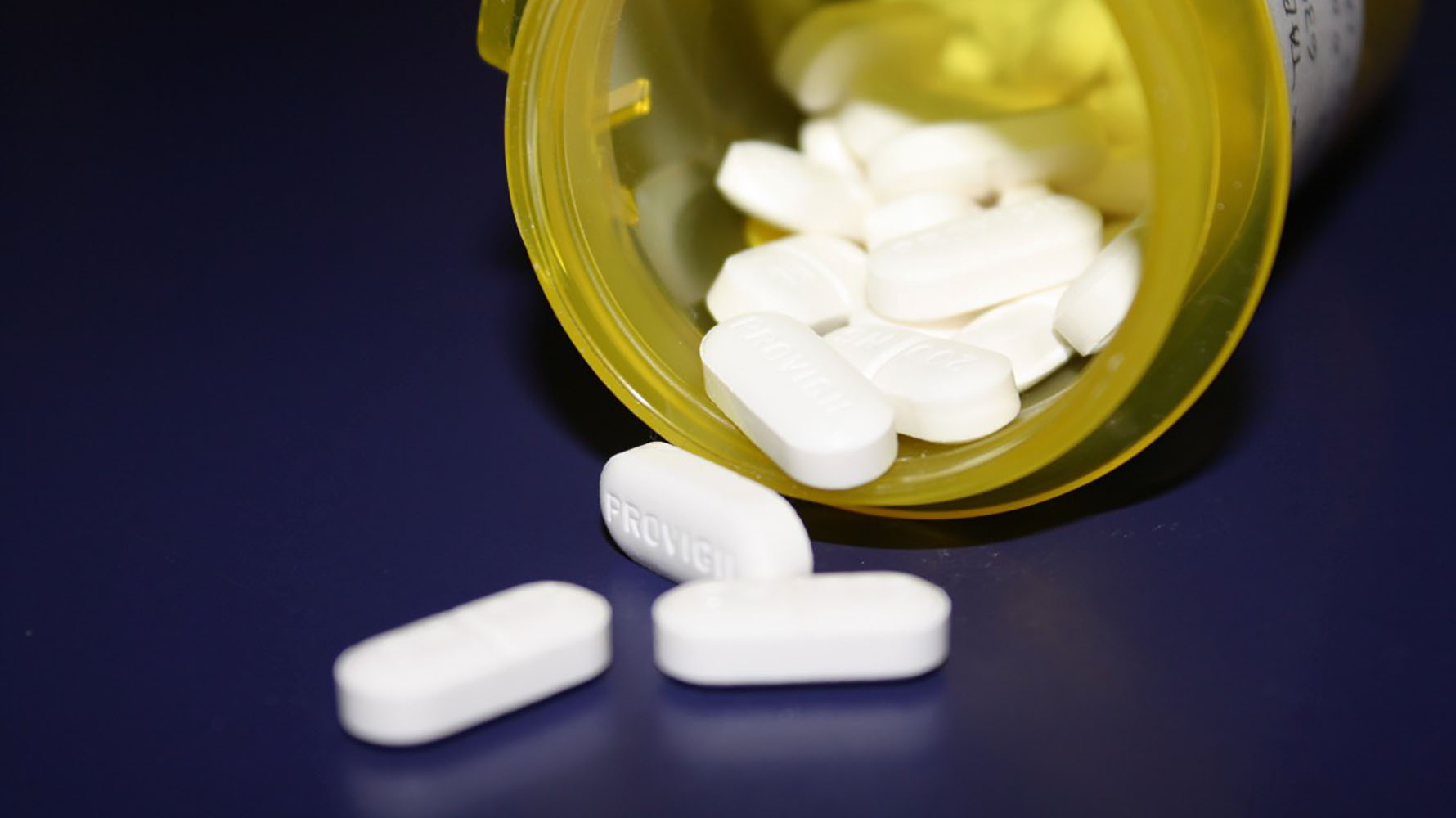
9.1 How To Use Modafinil
Start taking Modafinil with one capsule. A strong effect is not guaranteed, especially if your weight is 80 kg or more. However, this is just a test of the body for the reaction of the drug. Perhaps this is already your norm. If there are any side effects, then immediately stop taking it. However, this is extremely rare, but if it does happen, then it means that you and this mood enhancer are most likely incompatible.
In the morning after waking up, take Modafinil 100-300 mg in combination with Caffeine 100-200 mg (capsules). Lie down in bed for another 30 minutes. Then your day begins more actively than before. And as you know, the beginning of the day forms the whole day.
Bodybuilders take Modafinil 1 hour before the start of their workout. For a faster effect of the mood booster supplement, you can do a warm-up or just push-up from the floor 20 times. This will significantly speed up the process of including the substance in the work.
The best time to use Modafinil is in the morning and in the afternoon. It is not recommended to use the drug after 4 p.m., as it may affect your sleep at night.
9.2 Dosage
If you just want to relieve fatigue, then a single dose of 100 mg will help you. To maintain “alert” all day, take 100 mg in the morning and 100 mg at lunchtime. If you wish to stay awake throughout the night, add another 100 mg capsule in the evening. In other words: 100 mg every 8 hours.
Athletes use Modafinil 100-400 mg 1 hour before training. But no later than dinner.
Of course, if you are already tormenting your body at an examination session or at work, then take care of its full nutrition with vitamins, minerals, trace elements (especially potassium and magnesium). Eat at least once every 3 hours. Drink plenty of water (at least 2 liters per day). Under these conditions, your processing will take place without consequences for the body.
9.3 Side effects and contraindications
Side effects are extremely rare when using Modafinil. Stop take these mood booster pills or reduce their dosage if symptoms develop.
Common side effects of Modafinil include:
- Backache
- Headache
- Nausea
- Anxiety
- Nasal congestion
- Diarrhea
- Feeling anxious
- Dizziness
- Dyspeptic disorders
- Insomnia
Dangerous side effects include:
- Profuse rashes
- Severe allergic reactions involving the liver or blood cells
- Hives
- Mouth ulcers
- Blistering or peeling of the skin
- Swelling of the face, eyes, lips, tongue, feet, or throat
- Swallowing and breathing problems
- Fever
- Individual intolerance to the drug
It is important to consult a doctor before taking Modafinil, especially for those who have hypersensitivity to the drug or other constituents of pills (such as lactose or lactose monohydrate), or have had cardiovascular disease, especially while taking other stimulants, or liver cirrhosis. And also for those who have heart disease, in particular left ventricular hypertrophy or mitral valve prolapse.
9.4 Precautions
If you plan to take Modafinil daily for an extended period of time, then it is best to stick to the lowest dosage. This minimizes the risk of unwanted side effects. Dosages bordering on the maximum allowable indicator are more suitable for one-time doses, when it is important to get a strong effect immediately. In addition, higher dosages of Modafinil may be required for people with an accelerated metabolism.
9.5 Interactions
Modafinil can reduce the effectiveness of certain birth control pills, which can lead to an unplanned pregnancy. This drug, when combined with Yohimbine, causes a dangerous increase in heart rate and blood pressure. Modafinil should not be combined with alcohol.
9.6 Overdose
Overdose symptoms are possible only if the person exceeds the maximum allowable daily intake of Modafinil. That is, they use more than 400 mg.
If you take too high a dose of Modafinil, symptoms similar to side effects occur. These include anxiety, agitation, restlessness, confusion, sleep disturbance, diarrhea, tachycardia, hallucinations, nausea, tremors, chest pain and some other symptoms.
10. What Is Kratom?
Kratom is a drug that is made from the tropical tree of the same name native to Southeast Asia. Kratom leaves or extract from its leaves have been used in alternative medicine for chronic pain and other conditions. Many people also use it to self-medicate symptoms of depression or anxiety.
The Food and Drug Administration (FDA) has not approved Kratom for the treatment of depression or anxiety. However, it is considered a dietary supplement and is therefore not FDA-regulated. Kratom is now federally legal, but some states have already banned the substance.
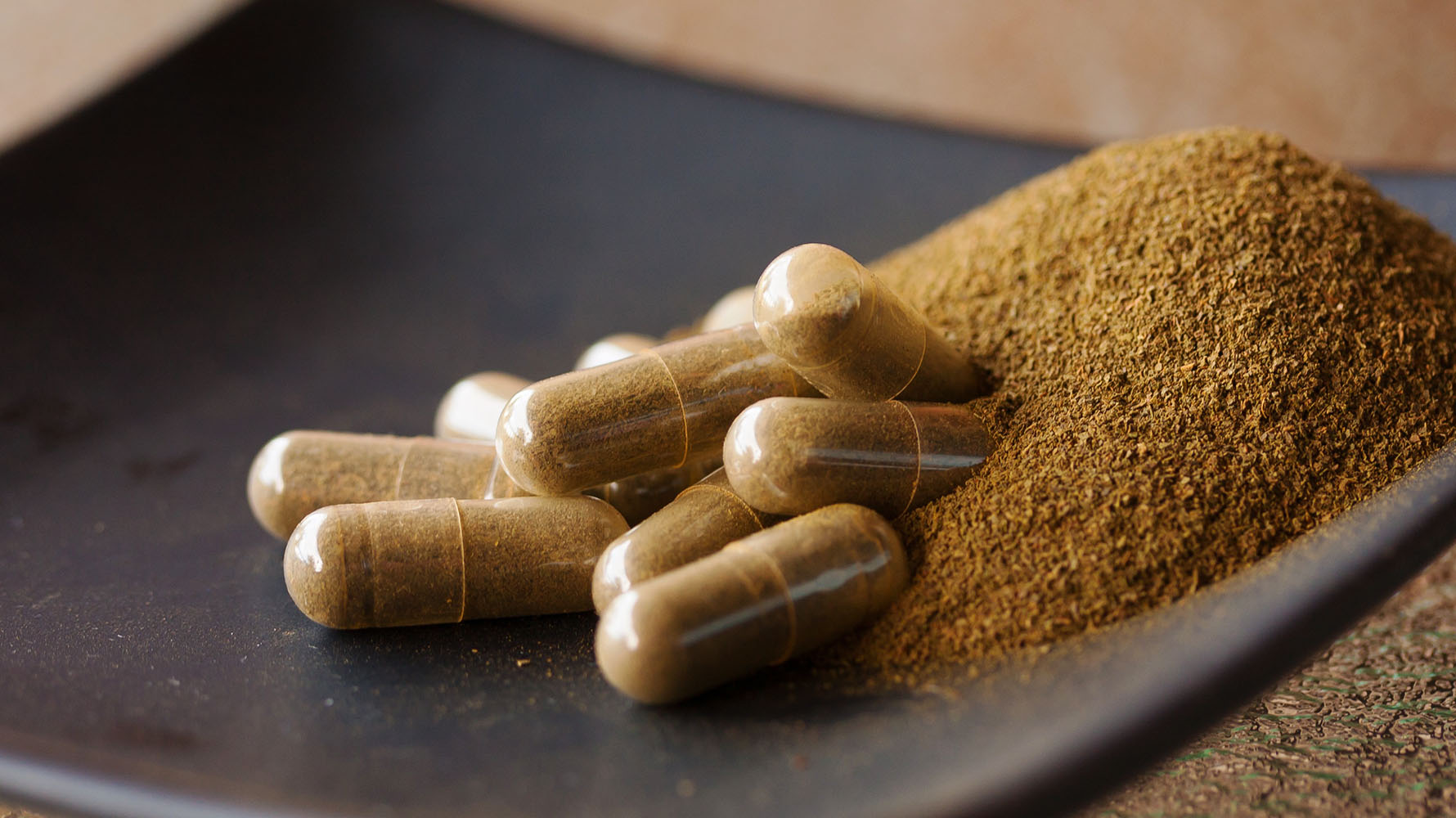
10.1 How Does It Work For Depression And Anxiety?
Kratom is not technically an opioid, but its effects are similar to those of opioids such as morphine or codeine.
The active ingredient in Kratom is called mitragynine. It binds to opioid receptors in the brain to relieve pain. This action can be responsible for the antidepressant and anti-anxiety effects reported by users.
There is currently very little research on the effects of Kratom on mood. One review in 2017 confirmed that some users of the substance had improved mood and anxiety. The researchers also highlighted that Kratom can have a sedative effect. Researchers have yet to study whether side effects such as sedation might affect its perceived benefits.
10.2 Kratom’s Many Forms
Kratom can take several forms: leaves, powder, capsules.
Leaves
Traditionally, Kratom leaves have been used as a stimulant by peasants in Southeast Asia. They have also been used to treat hypertension, coughs and diarrhea.
In Southeast Asia, fresh leaves are commonly chewed (most often on an ongoing basis) by workers to achieve a stimulating effect and reduce fatigue. Elsewhere, the dried leaves are usually brewed as tea or extracted with water, which is then evaporated into a gum suitable for consumption.
Powder
Kratom powder is still widely used and is one of the most popular forms along with capsules. The use of powder has various advantages:
- The powder has a long shelf life and is easy to store;
- It is more convenient to use than raw leaves;
- The powder mixes well with water.
The main disadvantage of Kratom powder is that it can get dirty.
Capsules
Capsules are a type of tablet that contains a small amount of Kratom powder. In the broadest sense, capsules are simply tablets that contain a pre-measured dose.
Advantages of using capsules:
- They are supplied in standardized quantities, which ensures dosing accuracy;
- Capsules can be taken on the way;
- They are easy to consume.
It is worth noting that capsules are more expensive than powder. For this reason, some people prefer the powder form.
10.3 How To Use Kratom
Care should be taken when using Kratom for the first time. Always start with a low dose and wait for the effect. If the dose is too high, nausea may occur.
Kratom can be taken before or after meals. However, after eating, the substance works a little longer.
10.4 Dosage
Let’s take a look at the dosages at which Kratom can be used.
- 1-5 grams (low to moderate). Increased energy and focus.
- 5-15 grams (high). Anesthesia, opioid-like “high”, increased risk of side effects.
- Higher dosages are not safe.
10.5 Side Effects And Contraindications
Although Kratom is well tolerated by many people, there is a risk of side effects.
Mild side effects may include:
- Constipation
- Dizziness
- Drowsiness
- Dry mouth
- Frequent urination
- Headache
- Itching
- Mood changes
- Nausea
- Vomiting
Serious side effects can include:
- Heart palpitations
- High blood pressure
- Insomnia
- Kidney problems
- Liver problems
- Loss of appetite
- Loss of libido
- Memory problems
- Psychosis
If you experience serious side effects, then stop using mood enhancers and seek medical attention.
10.6 Precautions
Mental disorders: In theory, Kratom can aggravate existing mental disorders. In addition, people with mental disorders who use the drug have an increased risk of suicide compared to those who use Kratom but do not have a mental disorder.
Alcoholism: People with alcohol dependence who use Kratom have an increased risk of suicide compared to those who use the drug but are not dependent on alcohol.
Pregnancy and breastfeeding: There is not enough reliable information about the safety of taking Kratom if you are pregnant or breastfeeding. Avoid using it.
10.7 Interactions
Please be aware that Kratom can interact with other substances, including medicines and alcohol. You should definitely not use Kratom in combination with psychoactive substances, as it can be life-threatening.
You should not drive or operate machinery after taking this drug.
10.8 Overdose
Kratom can cause overdose. According to the Centers for Disease Control and Prevention (CDC), between 2016 and 2017, 91 people died as a result of an overdose of Kratom in 27 US states. However, it is important to note that 84 of these 91 cases involved other substances.
Narcology centers report some symptoms that may indicate an overdose:
- Agitation
- Coma
- Drowsiness
- Hypertension
- Irritability
- Nausea
- Seizures
- Tachycardia or fast heart rate
11. What Is Adderall?
Adderall is a prescription drug that contains two substances: amphetamine and dextroamphetamine. It belongs to a class of drugs called stimulants. It is used to treat attention deficit hyperactivity disorder (ADHD) and narcolepsy. Research shows that Adderall improves focus and concentration, and reduces impulsive behavior.
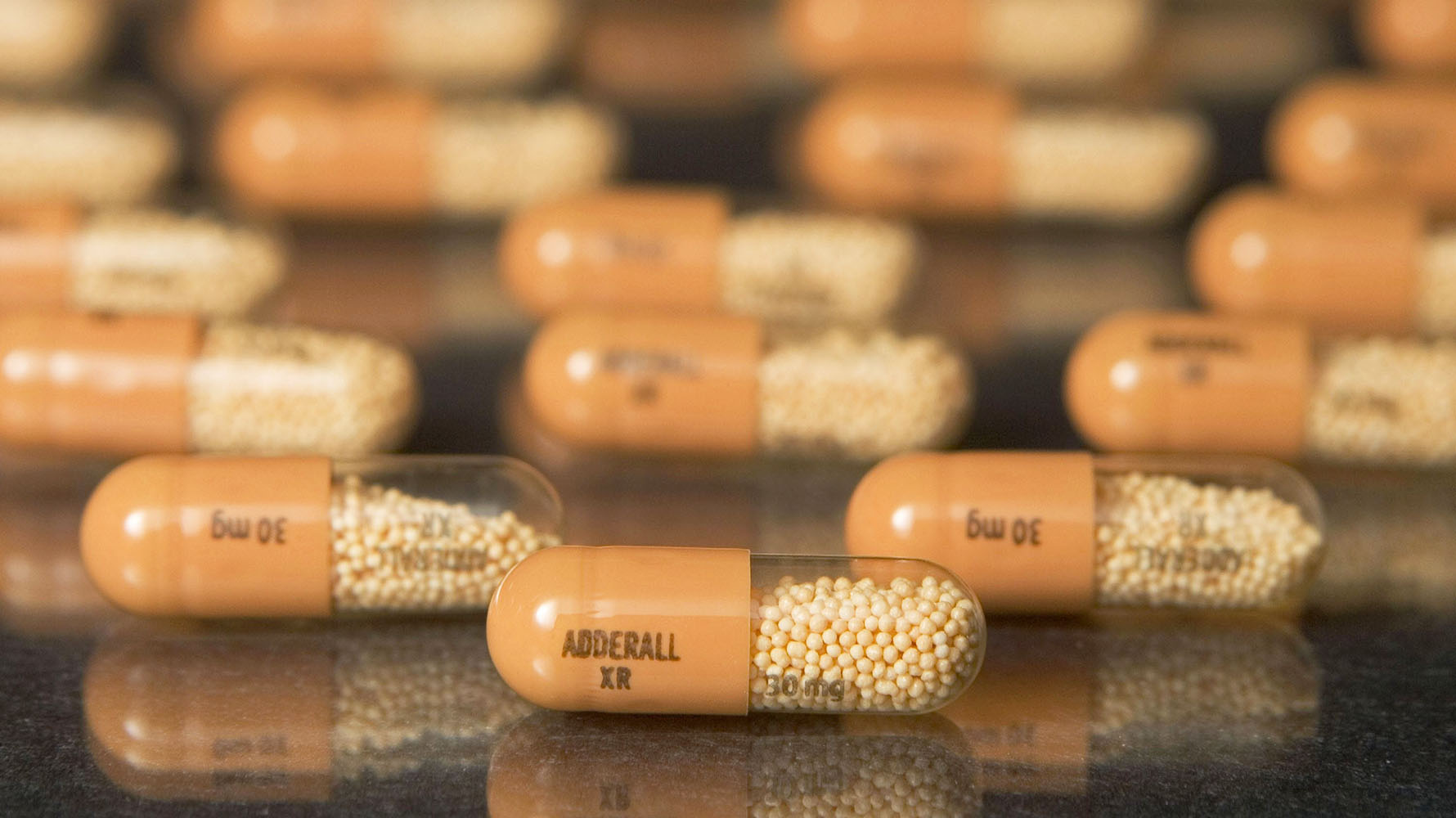
11.1 How To Use Adderall
You should always start taking Adderall at the lowest dosage. It is then individually adjusted according to the therapeutic needs and the patient’s response. Patients should always take the lowest effective dose recommended by their doctor.
Adderall is taken orally once a day, with or without food. The capsules should be swallowed whole with water or other liquids.
It is recommended to take Adderall in the morning. For best results, it should be taken at the same time every day.
Adderall is available in the following dosages: 5 mg, 7.5 mg, 10 mg, 12.5 mg, 15 mg, 20 mg и 30 mg.
Adderall XR is available in the following dosages: 5 mg, 10 mg, 15 mg, 20 mg, 25 mg и 30 mg.
Mydayis is available in the following dosages: 12.5 mg, 25 mg, 37.5 mg, 50 mg.
11.2 Dosage
The starting dose of Adderall ranges from 5 mg to 20 mg per day. When treating narcolepsy, dosages can be as high as 60 mg.
The optimal dosage of Adderall is gradually determined by how the person metabolizes the drug.
Typically, your doctor will start with a low dosage and adjust it over time to achieve the dosage you want. Ultimately, he will prescribe the lowest dosage that provides the desired effect.
11.3 Side Effects And Contraindications
Adderall can cause mild to serious side effects. Let’s list them.
The more common side effects of Adderall may include:
- Anxiety
- Constipation
- Dizziness
- Dry mouth
- Headache
- Lack of appetite
- Nausea
- Stomach pain
- Trouble sleeping
- Weight loss
These side effects may disappear within a few days or a couple of weeks. If they are more severe or persistent, be sure to talk to your doctor.
Serious side effects can include the following:
- Agitated or aggressive behavior
- Blurred vision
- Depression
- Hallucinations
- Heart problems including high blood pressure, rapid heartbeat, heart attack, and stroke
- Impaired or delusional thinking
- Irritability
- Muscle breakdown called rhabdomyolysis
- Severe allergic reaction
Call your doctor at once if you have a serious side effect. Call 911 if symptoms appear to be life-threatening or if you think you need urgent medical attention.
Adderall is contraindicated in the following conditions:
- Advanced arteriosclerosis
- Agitated states during or within 14 days following the administration of monoamine oxidase inhibitors due to risk of hypertensive crisis
- Glaucoma
- History of drug abuse
- Hypersensitivity or idiosyncrasy to the sympathomimetic amines
- Hyperthyroidism
- Moderate-to-severe hypertension
- Symptomatic cardiovascular disease
Talk with your doctor or pharmacist for more information about possible side effects of Adderall or pro-indications.
11.4 Precautions
Pregnancy. If you are considering pregnancy, then discuss the use of Adderall with your doctor. Animal studies indicate a potential risk of fetal injury. Babies may be born prematurely, have low birth weight, have learning or motor problems, or experience withdrawal syndrome. Adderall is passed through breast milk, so mothers are not advised to breastfeed while taking it.
Store Adderall in a safe place out of the reach of children at room temperature. Don’t share your prescription with anyone, not even another person with ADHD. Sharing prescription drugs is illegal and can be harmful.
11.5 Interactions
Before taking Adderall, tell your doctor about any other medicines you are using. Adderall can have dangerous, possibly fatal interactions with antidepressants, including MAOIs.
Use caution with medications including antipsychotics, lithium, narcotic pain relievers, anticonvulsants, blood thinners, blood pressure medications, stomach acid medications such as antacids, and cold or allergy medications that contain decongestants. Even over the counter mood enhancers can contain ingredients that raise or lower blood levels of the drug to dangerous levels.
Share with your pharmacist a list of all vitamins or herbal supplements, prescription and over-the-counter medicines you are taking. Tell all doctors that you are taking Adderall before having any surgery or laboratory tests. The above list of interactions is not complete.
11.6 Overdose
Call 911 if you or someone else has an overdose and severe symptoms such as fainting or shortness of breath. You can also call a Poison Control Center. US residents can call their local poison control center at 1-800-222-1222.
Overdose symptoms may include: severe mental/mood changes, seizures, severe/persistent headache, severe restlessness, fast breathing.
12. Adderall / Kratom / Modafinil / – What To Choose?
Let’s take a look at the comparative table of mood booster supplements. Do not forget that their use should be done only after consulting a doctor.
| Main differences between Adderall, Kratom and Modafinil | |||
| Adderall | Kratom | Modafinil | |
| Drug class | Central Nervous System (CNS) Stimulants | Experimental | Central Nervous System (CNS) Stimulants |
| Trade names | Adderall, Adderall XR, Mydayis, others | Biak, Ketum, Kakuam, Ithang, Thom, others | Provigil, Alertec, Modavigil, others |
| What form(s) does the drug come in? | Oral tablets or capsules | Powder or capsules | Oral tablets |
| Standard daily dosage | 5-40 mg | 1-5 grams | 100-200 mg |
| How long is the typical treatment? | Prescribed by a doctor | unknown | Prescribed by a doctor |
Frequently Asked Questions
What Is The Best Mood Enhancer?
If the standard methods do not help you solve the problem, then you should use the following mood booster supplements: Ashwagandha, Vitamin D, Omega-3 Fish Oil, L-Tyrosine, St. John’s Wort. We recommend that you see a doctor if depression has become clinical. If this happens, you may need medication for treatment.
Why Should You Take Mood Enhancing Supplements?
Positive emotions not only make life more interesting and productive, but also directly affect our health and beauty. In turn, stress and various psycho-emotional experiences can negatively affect the immune system.
What Can I Take To Improve My Mood?
Depression lowers quality of life. Therefore, you need to solve this problem as soon as possible. Here are some simple tips that work: sleep well, relaxation, comfortable environment, socializing with friends, physical activity.
It is quite difficult to cure lingering depression on your own. You may need a doctor’s help.
What Drugs Improve Mood?
There are many drugs that not only improve mood, but also increase alertness and concentration. Three such drugs have been reviewed in this article: Adderall, Kratom, Modafinil. However, this does not mean that they are suitable for you. If you really have health problems, then you should see your doctor.
Which Natural Mood Enhancers Work?
The following natural mood enhancers can help you deal with the signs of depression:
- Iodine
- Iron
- Magnesium
- Omega-3
- Selenium
- Vitamin D
- Vitamins of Group B
- Zinc
Thank! Your message has been sent successfully.






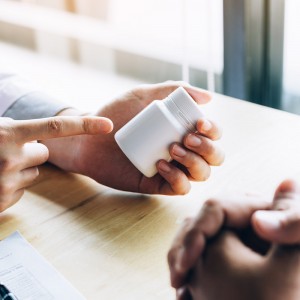




Questions and answers 0